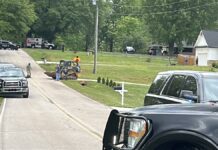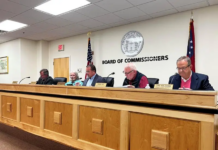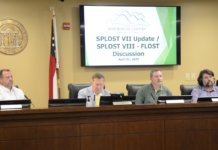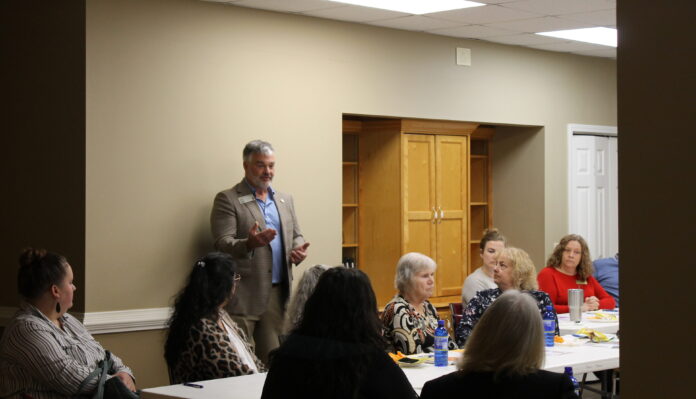
For more than an hour on Tuesday, Oct. 15, representatives of over 30 local nonprofits listened as Georgia Rep. Victor Anderson (R-Cornelia) outlined a range of legislative initiatives he foresees taking precedent in 2025.
Anderson, who represents portions of Habersham and Rabun counties, is a member of a human resources subcommittee in Georgia’s House. A primary focus of that committee is to provide social service organizations the funding they need to reach populations with mental health challenges. As drafted, Georgia’s fiscal year 2025 budget is just over $36 billion.
With a number of contentious “contemporary issues” like safety, security and healthcare on the agenda next year, Anderson said he expects the upcoming legislative session to be “one of the toughest” since he was elected in 2020.
Another reason is that Anderson’s growing role as a leader in the House is expanding the scope of his work as a lawmaker.
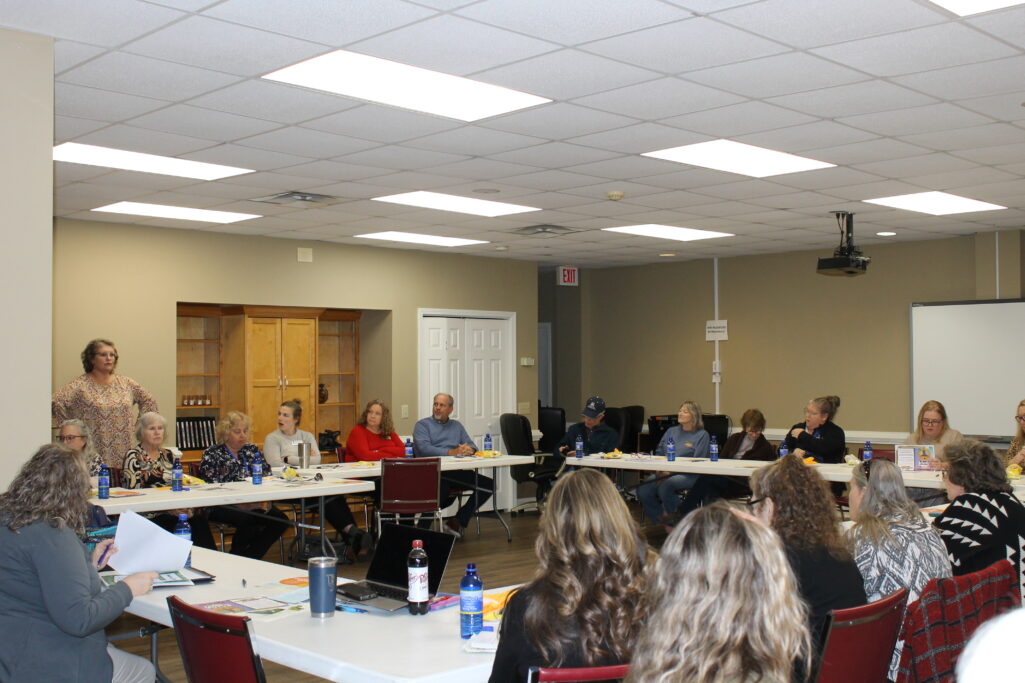
Mental health
Capitalizing on the Mental Health Parity Act (House Bill 1013) passed in 2022, additional state funding for social services could be on the horizon, according to Anderson.
Anderson, who is up for reelection this year, stopped short of pledging a specific amount to these services. But he indicated that in 2025 Georgia’s budget surplus (around 16 billion for 2024) could be an effective source of funding for mental health next year.
“While we still budget very conservatively, we also understand Georgia’s economy is growing,” Anderson said. “We’re trying to allow for that in our budgeting process. It’s great to have excesses. But when you have huge excesses, somebody didn’t do their job. We’re trying to correct that…(then) we’re able to budget more funds to go into programs throughout the state, but also in the capacity of (mental health resources).”
When lawmakers look to allocate funds in the upcoming session, Anderson said he hopes to see “that bucket being a little bigger” for social service organizations in North Georgia.
“That’s something we’re fighting for and trying to get done,” he said.
A closer look at healthcare
While Georgia is known for its GOP-led resistance to full Medicaid expansion under the Affordable Care Act, Anderson and fellow Republicans in the legislature have eyed other ways to boost healthcare accessibility.
On Tuesday, Anderson told those in attendance that he is among members of Georgia’s House taking a “harder look” at the figures to balance access to Medicaid and conservative economic values.
Georgia pathways to Medicaid coverage include a work/public service requirement component, according to Anderson. He said this “only goes part of the way to what the full ACA Medicaid expansion allows through the federal government.”
Anderson went on to note that while programs like Peachcare provide about 1.9 million Georgia children healthcare coverage, he believes more can be done to “expand coverage to more people in lower income brackets.”
“We’re pushing and trying to figure out a way to balance the two: To get the healthcare service availability to more people at a reasonable cost to both the state and the individual and still maintain conservative principles that our executive branch has been pushing for years,” Anderson said.
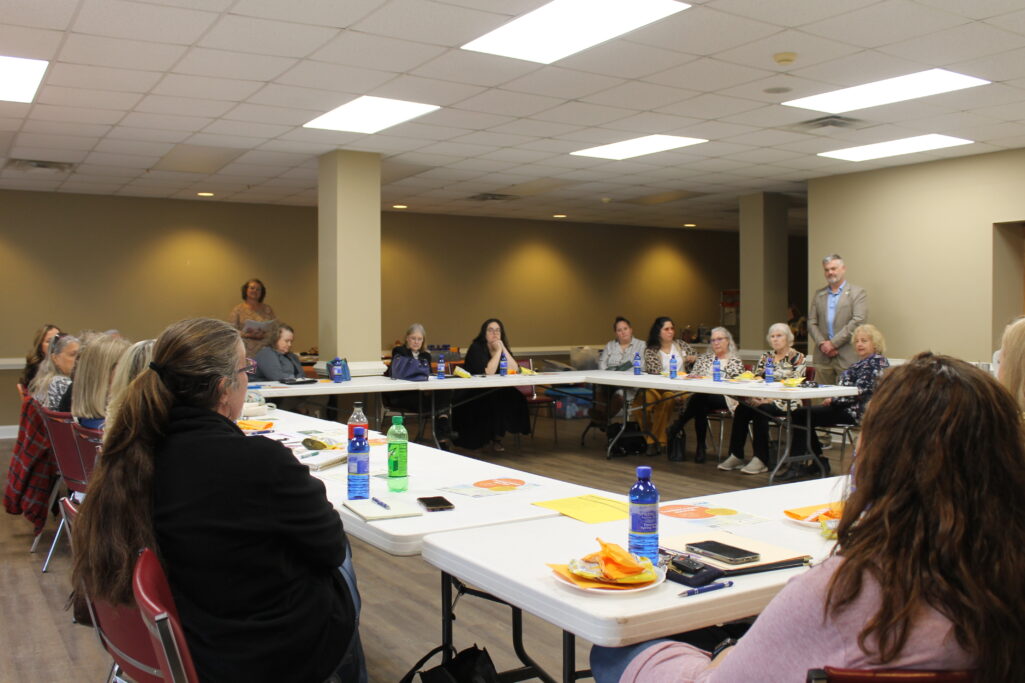
Gun Control
Some of those contentious issues Anderson expects to see next year came a few months early.
During the latter part of Tuesday’s meeting, Candace Price, a project coordinator for the Partners in Prevention Project, seemed to press Anderson on the subject of stricter gun laws in the wake of the Apalachee High School shooting.
In response, Anderson said issues of firearm security will continue to be an ongoing debate in the upcoming legislative session. “That’s going to be a major topic of discussion,” he said. “House leadership has already come out and said there are things we can and should do.”
Social welfare
Linda Johnson, executive director of Family Resource Center of Northeast Georgia, also engaged Anderson during the open forum segment of the meeting.
Johnson’s organization works to prevent child abuse and strengthen families across the region. But many of those at-risk families, she said, continue to struggle with financial challenges caused by low wages and inflation.
“We count on you to be our advocate…I do have some single moms who are working, but it’s very hard for them to take care of their family at the rate they get paid and what the cost of living is,” Johnson said. “There’s not a lot of resources, so I just want you to keep that in mind. Some (families) are really, really trying. But it is very difficult right now for single parents.”
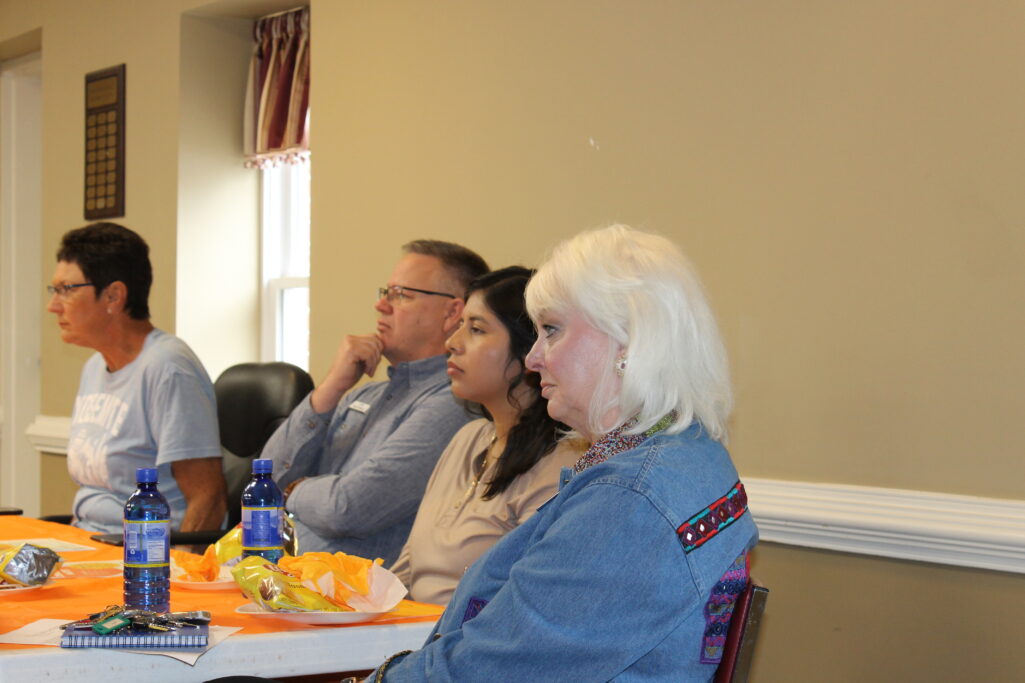
Speaking to Anderson, Jennifer Reagan, owner of Low Dough Family, noted Gov. Brian Kemp’s decision to opt out of the U.S. Department of Agriculture’s Summer EBT program, which would’ve provided low-income families with eligible school-aged children $40 a month. Reagan said low-income families in rural Northeast Georgia communities already see a higher disparity when it comes to food insecurity.
“Here in Habersham, we had half as many locations available to give out free lunches and breakfast over the summer, so you had a lot of families who had no additional food assistance,” she said. “It boggles my mind that (Kemp) could say we had plenty of programs in place.”
Anderson said Johnson’s statement reflected resounding sentiment he’s heard from others across the state. As a father to a single mother, Anderson said he understood the financial burden working-class families face.
Without offering specific solutions, he said: “We’re trying to put things in place…the (lawmaking) process is a process I’ve spent four years learning. We’ve got a great group of guys in this northeast corner of the state who understand that.”
‘Consumer protection’
Next year, Anderson said he’ll take a direct role in a study committee that will assess the need for additional protections for workers in Georgia’s tree care industry.
Every year, an estimated 1 of 1,000 tree trimmers across the state suffer fatal accidents, according to Anderson. He described this as a grim statistic compared to the national average of 3.5 of 100,000 for all industrial, business or work-related deaths.
Anderson remarked that in Georgia there are no licensing or insurance requirements in that industry. Now, he wants to see something done to change that.
“If you’ve got a truck and a chainsaw, you’re a tree trimmer,” he said. “We’re not trying to (deter) people from starting small businesses and trying to achieve the American dream. We’re trying to figure out how to allow that – but still put things in place to make sure (workers) come home to their families.”
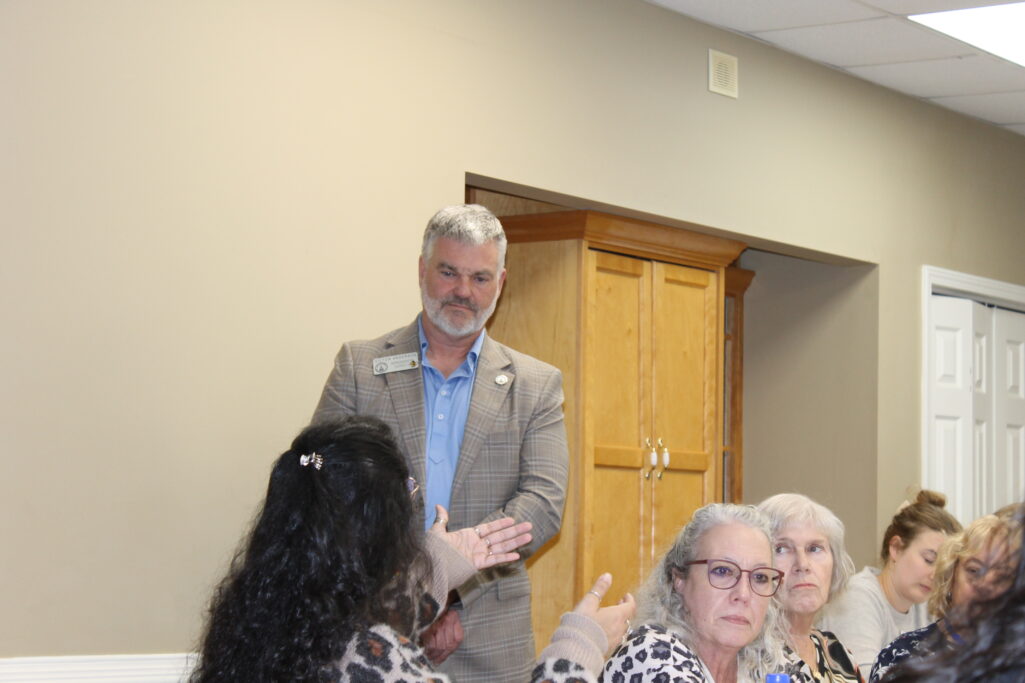
Georgia’s General Assembly will enter into its next legislative session Monday, Jan. 13, 2025.


